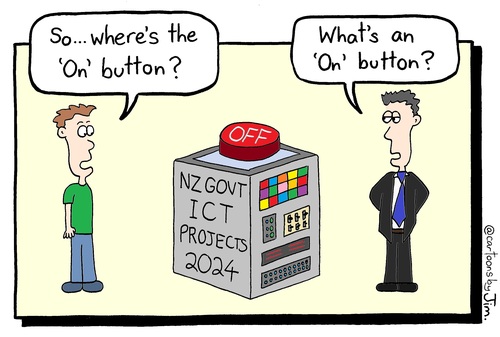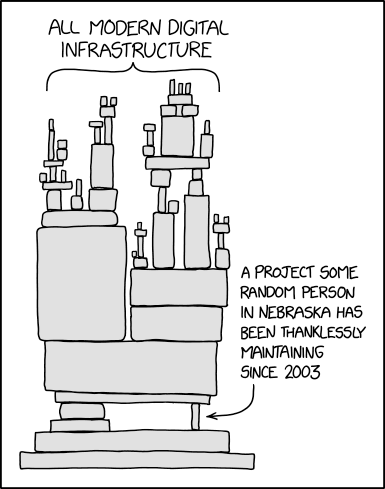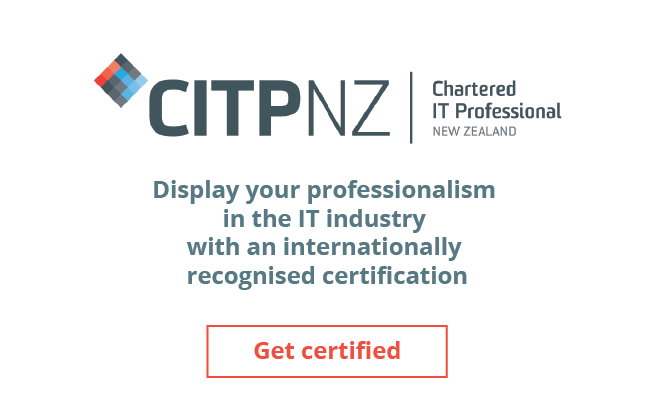ITP Digital Pānui
Kia ora koutou and welcome to the first digital pānui from IT Professionals in 2024! What a funny old time of year with Wellington / Auckland / Nelson Anniversary days, school returning, Waitangi Day celebrations and these long hot summer days. It’s hard for everyone to concentrate on work.
With this in mind, a short edition today with a wee bit from me on jobs, some interesting reading on Data Sovereignty, our fabulous blogs and cartoon and introducing a new segment - Tech Talk - where I plan to expand on some topical tech jargon each week. In the next few weeks we will be moving to new technology for this pānui as well integrated with the new ITP.nz website.
Where are all the jobs?
Last week IT Professionals advertised for a half time Team Administrator, someone to replace the lovely Vic who is heading to the UK, able to work remotely or in our Wellington office, support the team, be customer focused and able to turn their hand to many things.
We had 230+ applicants in less than 1 week and the breakdown of applicants is pretty alarming:
- 50+ are 2022/23 school leavers about half enrolled in higher education, many with no work experience
- 75+ did not have the right to work in Aoteaora (candidates in country or applied from overseas)
- We also had teachers, teacher aides, trades people, recruiters, researchers etc etc apply
- 50+ are Digital Technology workers / graduates who hold a BSc or equivalent.
Lets let that last one sink in - nearly quarter of our applicants are tech folk looking for work. We are IT Professionals so it’s not a leap to think getting an entry level role with us could help create pathways into tech jobs but we were surprised at the sheer volume of highly qualified digital technology workers - some in current roles but most were recently displaced or had graduated an been unable to secure a job in Tech to date.
I was contacted last week by an RNZ reporter who is investigating what’s happening in the job market for digital tech, he referenced this Reddit thread as creating concern about our industry and the job market.
Wanting to validate this I asked our membership and was surprised by the concerning replies from those who have been unable to secure roles recently, been laid off, feel they are facing ageism or regionalism.
Last year Summer of Tech reported businesses were not investing in creating internships (or graduate) roles leaving thousands of students looking for work experience placements over the holiday period with nowhere to go.
The recent layoffs by Universities and Te Pūkenga if digital technology related teaching staff - including one university cutting their whole visual tech department (no more AR/VR/UI/UX/Design) - would indicate a lesser demand wouldn’t it?
Peter has written up the global workforce context for us this week - Virtually there: Global tech recruitment trends for 2024 - he is speculating the worst of the layoffs are behind us and that there will be modest pay increases coming. He also talks about the hiring trend of hiring remote workers who continue to reside in their country of residence.
Brendan has certainly captured what’s happening here in the capital digital tech project wise this week with his cartoon - Off Button.

Other ITP Blogs
Peter’s editorial today is also on jobs - AI is eating jobs, starting at the tech companies building AI. Sadly more layoffs are discussed, especially in the gaming space, the bottom line benefits companies are expecting through AI automation and how we can get ready for this transition - eek.
Our guest blog this week is - Reining in AI means figuring out which regulation options are feasible, both technically and economically - includes an interesting segment on distinguishing human from AI generated content.
More AI reading
One of my former data science colleagues Sean McGirr produced this great blog when is it safe to use ChatGPT and making sense of the many options ChatGPT presents us with. Seriously this is good.
Our friends at Raygun have released their data and AI principles which are in plain English, clear and easy to understand, something we can all aspire to.
Massive Congratulations to Tim Bell CNZM
It was simply fantastic to see one of our industry leaders recognised for his mahi in the Computer Science and Digital Equity space in the New Years honours list with a Companion of the New Zealand Order of Merit. Professor Tim Bell is known for his mahi with University of Canterbury, he is also the brains behind CS Unplugged a programme designed to teach digital technology concepts without a device, was a founding trustee of Digital Future Aotearoa the charity who run Code Club and Recycle a Device. Tim was also an author of the Digital Technology curriculum for Aotearoa. My point is he’s amazing and it’s awesome to have one of our leaders recognised in this way. Yay.
Data Sovereignty
Some holiday reading that came out late last year on Data Sovereignty. This short article from Catalyst explains the difference between data residency and data sovereignty.
For an in-depth read the Royal Society also released their expert advice paper “Mana Raraunga Data Sovereignty” which provides comprehensive insight, background and explains indigenous data sovereignty and governance in depth. Well worth a read.
Tech Talk
This segment of the pānui is new and is designed to expand on some of the acronyms and jargon we create as an industry. Today - SBOMs. I was really privileged yesterday to attend a workshop with a range of research academics and industry specialists on the wider topic of Cyber Security and Software Supply Chain Security. One of our deep dive discussions was on SBOMs so I thought I would kick the new Tech Talk segment off with this.
SBOM - A Software Bill of Materials (SBOM) is essentially a detailed list that provides information about all the components used in a piece of software. Much like an ingredients list on a food package, an SBOM tells you what's inside the software, including various elements like open-source libraries, proprietary code, and third-party components. This list is crucial for understanding what's in the software, helping in managing security risks, complying with licenses, and dealing with vulnerabilities effectively. Think of it as a map that shows all the building blocks that make up a software application.
Why are SBOMs important - visibility and transparency, vulnerability management, compliance and licensing, risk assessment and mitigation, incident response, supply chain integrity and patch management to name a few.
Finally
Before you go back to enjoying the sunshine. In that workshop I attended yesterday someone shared this diagram which says it all for me. Kia pai ō rā whakatā, have a great weekend.
Source: https://www.explainxkcd.com/wiki/index.php/2347:_Dependency






